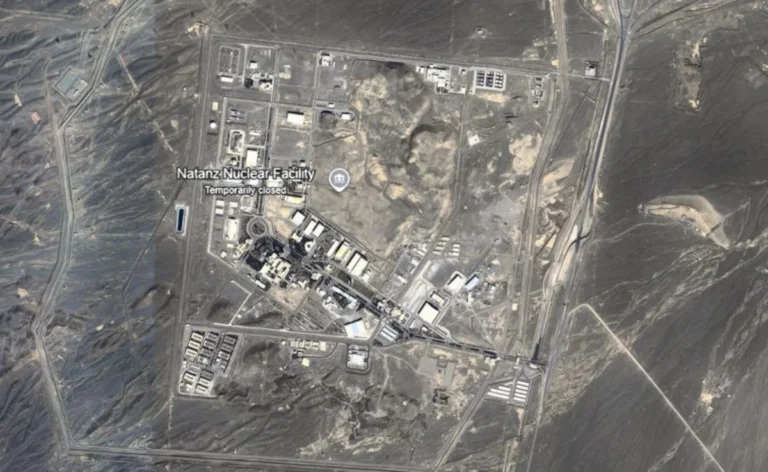
In the early hours of June 12, 2025, the world changed. Israeli fighter jets soared across the skies of the Middle East under the cover of darkness, targeting dozens of high-value Iranian nuclear and military sites. The operation, now officially dubbed Operation Rising Lion, was not just a strike—it was a message, a reckoning, and possibly the opening act of a broader regional war.
Here’s everything you need to know about the boldest and most consequential Israeli military operation in decades, Iran’s swift retaliation, and the dangerously uncertain road ahead.
🛫 The Airstrikes: Coordinated, Calculated, Devastating
Operation Rising Lion unfolded over several hours in what military analysts have called an unprecedented show of air superiority and coordination.
Key Israeli targets:
- Natanz and Khondab uranium enrichment plants—major hubs in Iran’s nuclear program.
- Ballistic missile production centers near Tehran, Khorramabad, and Isfahan.
- Residential compounds and secret military bases used by the Islamic Revolutionary Guard Corps (IRGC).

🎯 Results of the attack:
- 200+ aircraft deployed in successive waves.
- 330+ precision munitions dropped on more than 100 sites.
- Dozens of top Iranian military and nuclear officials killed, including:
- Gen. Hossein Salami (IRGC commander)
- Maj. Gen. Mohammad Bagheri (Armed Forces Chief of Staff)
- Gen. Gholam Ali Rashid (military strategist)
- Nuclear scientists Fereydoun Abbasi and Mohammad Tehranchi
The destruction extended far beyond military facilities—civilian neighborhoods were struck, hospitals overwhelmed, and power grids compromised. According to initial reports, at least 100 people were killed, many of them civilians.
🔥 Iran’s Retaliation: Over 100 Drones Launched
Just hours after the strikes, Iran unleashed its fury.
Over 100 drones were launched from multiple Iranian provinces in a coordinated retaliatory attack aimed at Israeli airbases and cities. While most of these drones were intercepted by Israeli Iron Dome defenses and U.S. regional assets, some managed to enter Israeli airspace.
Key points:
- Iranian state media described the retaliation as “bitter and painful”.
- Israel confirmed minor damage and limited injuries, but tension remains sky-high.
- Airspace closures followed immediately across Israel, Iran, Jordan, Iraq, and parts of the Gulf.
- Oil prices surged by 6–8% on global markets, reflecting fears of a prolonged regional war.
🏛️ The U.S. Position: Watching Closely, Staying Distant
The United States, under the Trump administration, was informed in advance of Israel’s plans but offered no direct military support.
Key developments:
- The U.S. evacuated non-essential personnel from bases in Iraq, Syria, and Bahrain before the strike.
- Officials issued a public statement reaffirming support for Israel’s right to self-defense but called on Iran to show restraint.
- Diplomatic talks with Iran—previously on track in Oman—have now collapsed.
⚖️ The Geopolitical Fallout
The Israel–Iran escalation doesn’t happen in a vacuum. It carries significant implications for the entire Middle East and beyond:
🔄 Regional Ramifications
- Hezbollah in Lebanon and Houthis in Yemen have signaled “solidarity” with Iran.
- Arab states like Saudi Arabia, UAE, and Qatar have tightened border security and gone into diplomatic lockdown.
- Turkey and Russia have condemned the Israeli action, urging de-escalation.
🔬 Nuclear Crisis
- Iran’s uranium enrichment was already at 60%, perilously close to weapons-grade.
- With key facilities hit and its top scientists killed, Iran may now abandon the Nuclear Non-Proliferation Treaty (NPT) altogether.
- The IAEA has called for an emergency meeting.
📉 Global Economic Concerns
- Oil and gas prices are climbing fast.
- Global markets are bracing for instability.
- Commercial airlines have rerouted flights away from the region.
⚠️ What’s Next? War, Diplomacy—or Both?
The world is watching. The next 72 hours will likely determine whether this conflict escalates into a full-scale war or becomes the catalyst for renewed diplomacy.
Possible scenarios:
- Wider war: Iran activates its proxies, Israel expands airstrikes to Syria, Iraq, and Lebanon.
- Cyber warfare: Both nations ramp up attacks on each other’s infrastructure.
- Quiet backchannel diplomacy: Qatar, Oman, and the UN may step in as mediators.
- Nuclear emergency: If Iran responds by fast-tracking a bomb, the region could spiral into a multi-front conflict.
🧠 Final Thoughts
Israel’s preemptive strike marks a historic moment in Middle Eastern geopolitics. It’s a clear statement: Israel will not wait for diplomacy if it believes its survival is at stake. For Iran, the loss is both strategic and symbolic, but it may choose to bide its time before launching the next phase of response.
For the rest of us, it’s a chilling reminder that despite the many domestic issues that dominate headlines, global conflicts—especially those involving nuclear powers—can erupt in a single night and change everything.
📌 Stay tuned for more updates as this story evolves.
📢 What are your thoughts? Should Israel have waited? Is Iran justified in retaliating? Share your insights in the comments.






